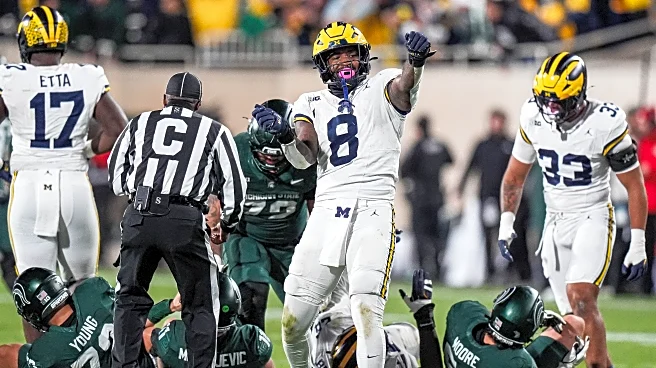What's Happening?
Rebecka Coutaz, Vice President and General Manager of DICE, has expressed her commitment to delivering the best Battlefield experience with the upcoming Battlefield 6. Following the troubled launch of Battlefield 2042, which faced criticism for bugs and missing features, Coutaz joined DICE with the goal of revitalizing the franchise. She emphasized the importance of listening to the community and creating a game that meets player expectations. Battlefield 6 returns to a modern-day setting, a decision influenced by fan feedback and the desire to recapture the essence of previous successful entries in the series.
Why It's Important?
The commitment to improving the Battlefield franchise highlights the significance of community engagement and feedback in game development. By addressing past shortcomings and focusing on delivering a high-quality experience, DICE aims to rebuild trust and loyalty among players. This approach could influence other developers to prioritize transparency and responsiveness, fostering a culture of collaboration and innovation in the gaming industry. The success of Battlefield 6 may impact the franchise's reputation and sales, as players seek immersive and satisfying gaming experiences.
What's Next?
As Battlefield 6 approaches its release, the game's reception will be crucial in determining its impact on the franchise and the gaming industry. Positive feedback from players could reinforce DICE's commitment to community-driven development, encouraging other developers to adopt similar practices. The game's success may also influence future entries in the series, shaping the direction of the Battlefield franchise and its role in the competitive gaming landscape. Additionally, the ongoing rivalry with Call of Duty may drive innovation and improvements in both franchises, benefiting players and stakeholders alike.
Beyond the Headlines
The emphasis on community engagement and feedback in game development raises ethical considerations regarding transparency and accountability. As developers navigate consumer expectations and industry trends, they must balance creativity with responsiveness to build trust and loyalty among players. This approach may also affect the cultural dynamics within the gaming community, as players engage with games that prioritize collaboration and authenticity. The long-term implications of these decisions could influence how games are developed, marketed, and perceived by consumers.











